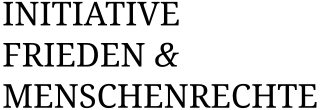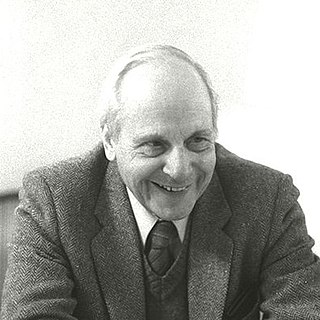
The Christian Democratic Union of Germany was an East German political party founded in 1945. It was part of the National Front with the Socialist Unity Party of Germany (SED) and a bloc party until 1989.

The Democratic Farmers' Party of Germany was an East German political party. The DBD was founded in 1948. It had 52 representatives in the Volkskammer, as part of the National Front. The DBD participated in all GDR cabinets. The founding of the DBD was an attempt by the SED to weaken the influence of CDU/LDPD in the rural community by establishing a party loyal to the SED. The leadership cadre came mainly from the ranks of the SED. In the late 1980s, the party had 117,000 members.

The Liberal Democratic Party of Germany was a political party in East Germany. Like the other allied bloc parties of the Socialist Unity Party of Germany (SED) in the National Front, it had 52 representatives in the People's Chamber.

Lothar de Maizière is a German Christian Democratic politician. In 1990, he served as the only premier of the German Democratic Republic to be democratically elected freely and fairly by the people. He was also the last leader of an independent East Germany.

Democratic Beginning was an East German political movement and political party that was active during the Revolutions of 1989 and in the period leading up to the German reunification. While it was a relatively minor party, it took part in the first democratically elected government in East Germany in 1990, and is especially known because future Chancellor of Germany, Angela Merkel started her political career within the party.

The German Forum Party was an opposition political party in East Germany. It was formed from the New Forum citizens' movement. It was founded in Karl-Marx-Stadt on 27 January 1990. Its first chairman was Jürgen Schmieder. It described itself as being at the political centre.
The Association of Free Democrats was a liberal coalition formed in East Germany on 12 February 1990. It originally consisted of the Liberal Democratic Party, the Free Democratic Party (GDR) and the German Forum Party. In the Volkskammer election of the 18 March 1990 the Association of Free Democrats polled 5.28% of the votes and gained 21 seats. It then participated in the last GDR government led by Lothar de Maizière.

New Forum was a political movement in East Germany formed in the months leading up to the collapse of the East German state. It was founded on 9 September 1989 and was the first independent political movement to be recognised by the Socialist Unity Party of Germany-led state on 8 November 1989. In February 1990 it formed Alliance 90 with Democracy Now (DJ) and the Initiative for Peace and Human Rights (IFM).

The Initiative for Peace and Human Rights was the oldest opposition group in East Germany. It was founded on 24 January 1986 and was independent of the churches and state. On 7 February 1990 it joined with New Forum and Democracy Now to form the electoral Alliance 90 and merged with them to form the Alliance 90 party on 21 September 1991.

The Green Party in East Germany was founded in February 1990. At the first free Volkskammer elections it stood with the Independent Women's Association and received 2.0% of the vote. They received 8 seats but could not resolve how to allocate them. The Women's Association pulled out and the Green Party formed a joint parliamentary group with Bündnis 90.

Manfred Stolpe was Federal Minister of Transport, Building and Urban Affairs of Germany from 2002 until 2005. Before, he was Ministerpräsident of the state Brandenburg from 1990 until 2002.

Alfred Dregger was a German politician and a leader of the Christian Democratic Union (CDU).
The Free Democratic Party (GDR) was an opposition political party in East Germany. The appeal for its formation was made on 25 November 1989 in Berlin by those East German liberals who doubted the ability of the former block party Liberal Democratic Party of Germany to reform itself. It was formally founded 4 February 1990, and 12 February 1990 it joined the Association of Free Democrats for the Volkskammer elections.

Gert Bastian was a German military officer and politician with the German Green Party.

The German Social Union is a small conservative political party mainly active in the new states of Germany. It was founded in 1990 as a right-wing opposition group during the Wende transition to democracy in East Germany, when it was part of the Alliance for Germany electoral coalition. After 1990, it fell into insignificance, only holding a few seats on the local level.

The Monday demonstrations were a series of peaceful political protests against the government of the German Democratic Republic (GDR) that took place in towns and cities around the country on various days of the week from 1989 to 1991. The Leipzig demonstrations, which are the most well known, took place on Mondays. The protests are conventionally separated into five cycles.

The Wende Museum is an art museum, historical archive of the Cold War, and center for creative community engagement in Culver City, California.

Werner Leich is a Protestant clergyman. From 1978 to 1992 he was the bishop of the Evangelical Church in Thuringia, for the greater part during the era of the German Democratic Republic.

Jürgen Schmieder is a politician, originally from East Germany, who came to prominence during the months immediately preceding German reunification.
Helmut Neuhaus is a German historian who specialises on the Early modern period. From 1989 to 2009 he held the Chair of Modern History I at the University of Erlangen–Nuremberg.
This page is based on this
Wikipedia article Text is available under the
CC BY-SA 4.0 license; additional terms may apply.
Images, videos and audio are available under their respective licenses.
















